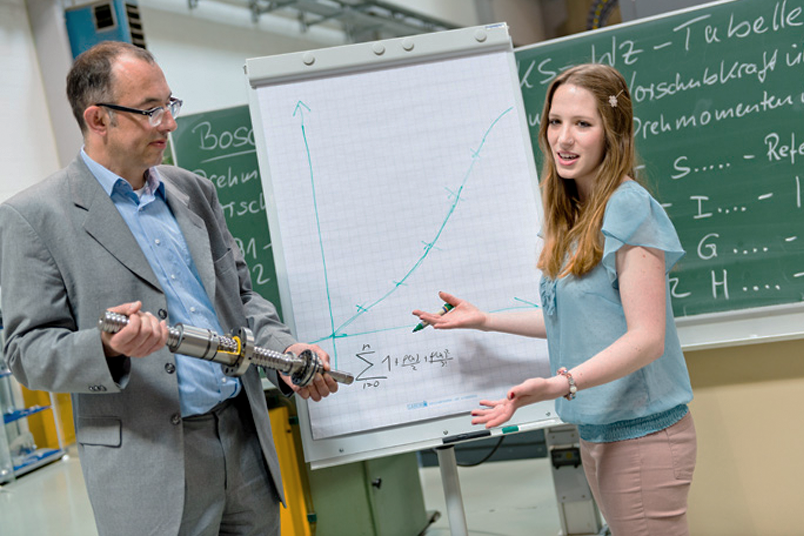- Ruhr-Universität Bochum

Spezialisations
Sales, product and service management skills
Sales, service and product management courses take up approximately 50 percent of the course content, such as moderation and communication skills. This is because, in addition to technical know-how, so-called “soft skills” such as negotiating skills and a confident manner are of great importance.
The Sales, Service and Product Management modules are required to be taken by all students due to their importance to their education.
By linking both areas, the steadily increasing demand for engineers in the management area and in the environment of technical sales is being countered. This makes it possible to look at problems and requirements from different perspectives. The knowledge from both areas, the technical as well as the sales, service and product management area, leads you to target-oriented and application-oriented problem solutions at the interface between market and company.
Technical competences
Courses in mechanical engineering are represented in the curriculum in a proportion of just above 50 percent.
With the knowledge base acquired in the first four semesters, from the fifth semester onwards there is a choice of three modern areas of study with innovative focus profiles.
The different concentrations allow a choice of education within wide limits and with different content. They also provide an insight into the diverse possibilities and opportunities that lie behind the term mechanical engineering. The individual focus areas are briefly outlined below.
Machine and automation systems (MAS)
From the idea to the successful product: Innovative minds can really have a good romp in this specialization! The focus here is on the entire development process, from methodical development to automated production.
In advanced laboratories, the know-how for planning and implementing products is taught here using modern IT solutions, such as VR applications. Students can also participate in research and industrial projects and experience the technology of tomorrow today.
Energy and process engineering (EVT)
Energy and process engineering is one of the fundamental technologies without which our modern society would be unthinkable. For example, the energy and raw materials turnaround plays a very decisive role here. Process engineering, for example, will have to function without fossil feedstocks in the future – renewable biological materials, carbon dioxide and hydrogen will replace oil and gas here.
In energy technology, the stability of power grids and the coupling of heat and power supply are central topics.
Materials and microengineering (WME)
Progress in many innovations today is often still slowed down by problems with the materials used. Therefore, the focus on materials and microengineering deals with numerous current developments.
These include, for example, the development of new materials for the automotive and aircraft industries, intelligent material solutions in medical technology, process engineering and environmental protection.
It makes sense to choose the same specialization in both the bachelor’s and master’s degree programs. Changing the specialization is in principle possible.
